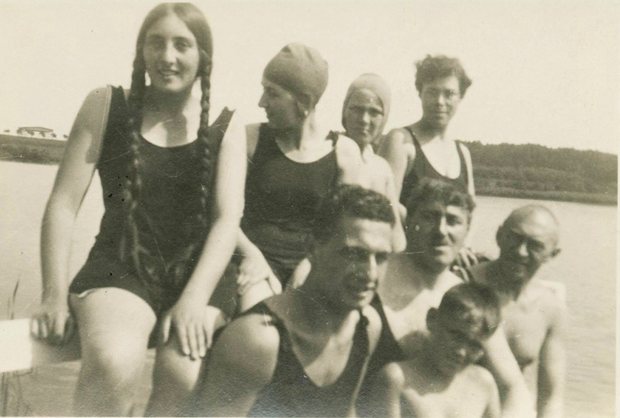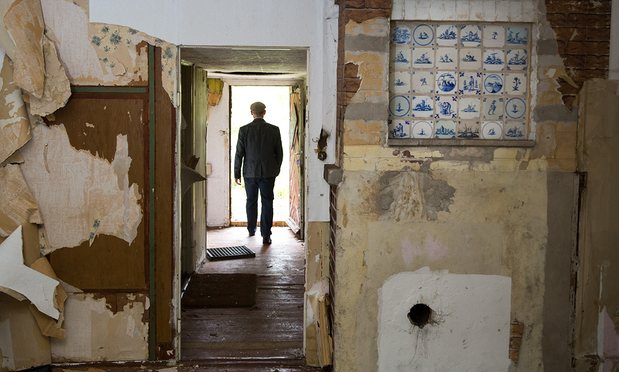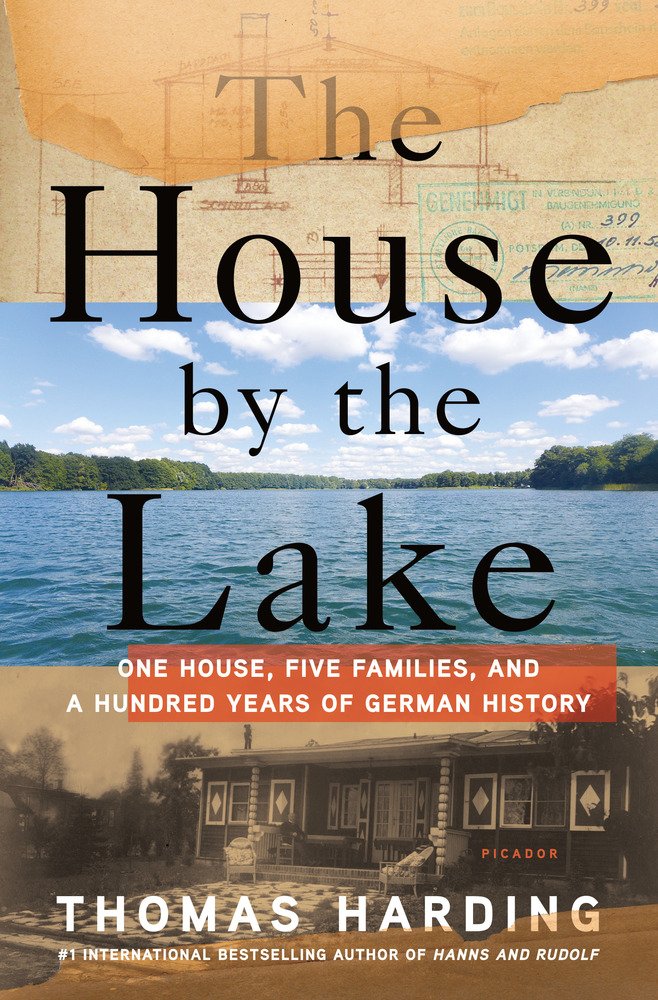Do not be taken in by tranquil thoughts of a summer house by the lake. Though many hours of pleasure were spent in the cabin, it has seen far more distress and tragedy. Harding recounts the story of five families who lived in the house, including his own ancestors who built it. The house serves as a touchstone for a century of tumultuous and regimented German history.
Beginning with the wealthy aristocrat who owned the land and manor house, the reader gets a glimpse of the faded glory of Wilhelm’s empire and the solidification of a new political landscape. The land-rich baron decided to lease (and then sell) parcels of land along the water, something now affordable to the expanding middle class.
In 1927, Alfred Alexander, a medical doctor in nearby Berlin, and his family settled on a long, narrow strip with just room enough for a small, comfortable home and a sliver of lake beach. The Alexanders enjoyed summers and weekends at the house. The city was growing quickly and they took every opportunity to escape the bustle of downtown. The doctor’s practice was successful and he was well-respected among his fellow surgeons.
Berlin’s expansion reflected the city’s new-found economic wealth. Siemens had electrified the city’s railway lines, and in November 1928, the Berlin Transport Company was established, making it the world’s largest urban transport company. … This was the period of dancing girls and jazz clubs, featured so colourfully in Christopher Isherwood’s Goodbye to Berlin. It saw the emergence of a new wave of film directors, such as Fritz Lang and his Metropolis, warning of the dangers of automation and modern cities. … The city’s main square, the Potsdamer Platz, was now the busiest traffic intersection in Europe. ~ Pg. 58

Then the 1930s came. There was the burning of the Reichstag and Berlin was the central command for the new regime. And the Alexanders were Jewish. Bit by bit, over the next four years, the doctor and his family were separated from society. Perhaps the most frightening aspect was how the propaganda minister would make a proclamation like disallowing Jews to work as newspaper editors or attend university. Then he would wait a few months for the affected people to readjust and then add another restriction, and begin the process again. The house in Groβ Glienicke could not be their refuge from reality much longer.

When Russia entered Berlin and carved out the east side of the city, the wall quite literally divided the property. Soviet barricades and a double fence separated the house from the lake. The water lay tantalizingly just out of reach. An international airstrip on the other side of the lake hosted glimpses of the outside world. Meanwhile, a new generation of villagers in Groβ Glienicke tried to eke out an existence, amidst an increasingly paranoid bureaucracy.
Other traditions soon began to disappear: on Christmas Eve, for example, it was customary for the village to gather together and sing carols. Yet with the border now dividing Groβ Glienicke in two, half the congregation were now unable to attend the service. … As an expression of the faith, or perhaps as a protest, the parishioners who has been cut off from Groβ Glienicke walked along the lakefront, candles in hand, singing carols. When their voices could be heard across the water in Groβ Glienicke, a few villagers lit their own candles in solidarity. ~Pg. 211
Harding makes it look easy. He gets the reader to care about people they’ve never heard of in a place they’ve never been. It’s a history lesson without the instruction. By centering the story around the inhabitants of a single, humble home, the enormity of history becomes minute and understandable. These families are just like ours, or our neighbor’s.
The house is still in existence, though it is in disrepair. The author has spearheaded an effort to restore Alexander Haus and create a museum. It’s a daunting task, but the house has seen worse.
Thanks to James at Picador for the advance edition.
___
Hardcover: 464 pages
Publisher: Picador (July 5, 2016)
Language: English
ISBN-10: 1250065062
ISBN-13: 978-1250065063
Product Dimensions: 6.4 x 1.5 x 9.4 inches
A Finalist for the Costa Book Award
Longlisted for the Orwell Prize
Named a Best Book of the Year by The Times (London) • New Statesman (London) • Daily Express (London) • Commonweal magazine


I have a copy of this and I’m so looking forward to it! The “biography of a house” seems like a fascinating angle on history.
Did not think I would get “pulled in” to the book so quickly … but I have! Turned out to be the “page turner” I never expected. And reconfirms my thoughts that some houses have a soul.
Yes, it is very absorbing. Framing the story around the house, and its families, takes the technicalities out of the politics and makes it very human.
When you finish, be sure to look at the place now and how they are fixing it up.